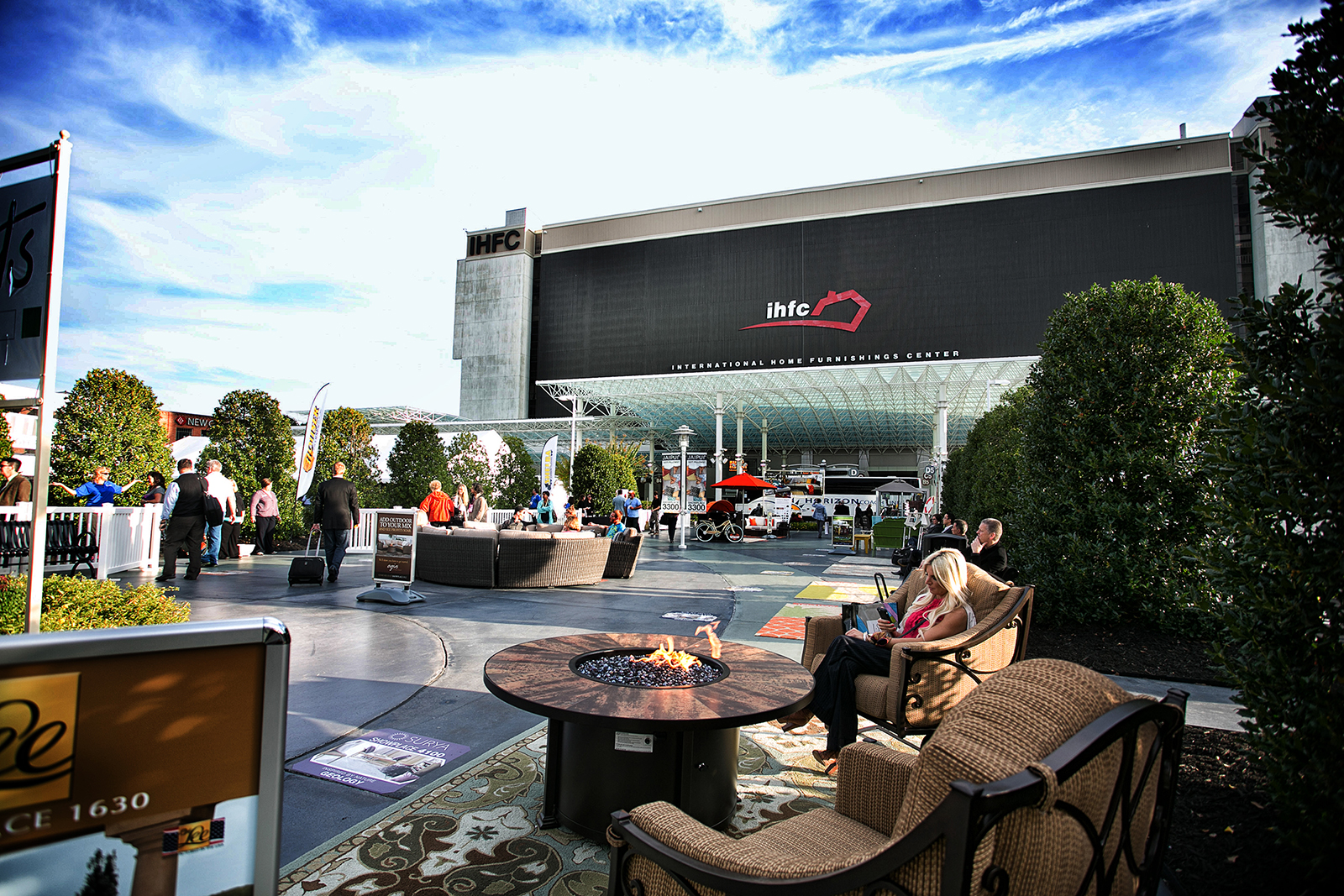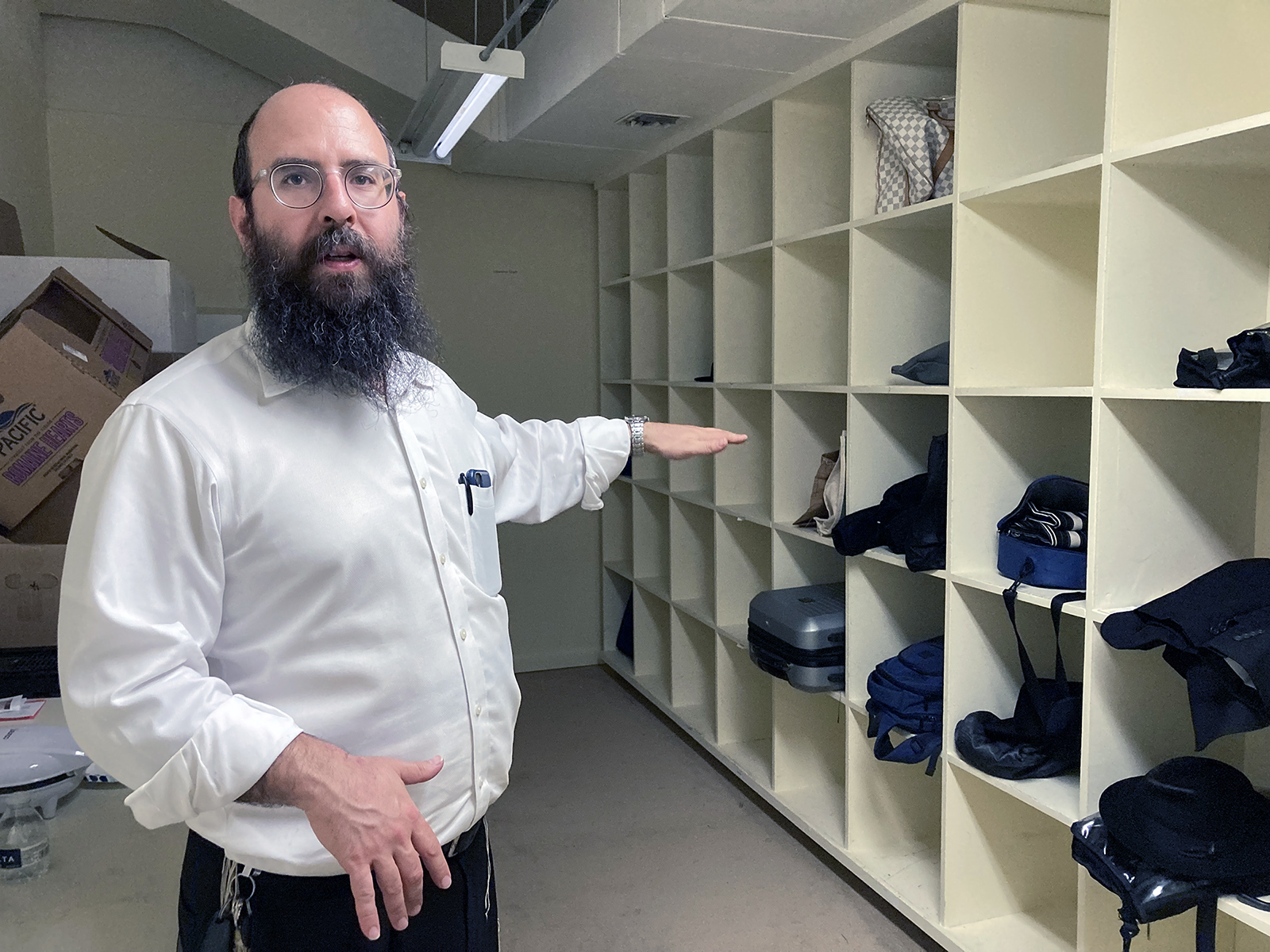
HIGH POINT, N.C. (RNS) — The Jewish community in this Southern city is tiny and mostly elderly. Its only synagogue building was recently sold to a church.
But twice a year the Jewish population of High Point expands exponentially for the High Point Furniture Market, the world’s largest home furniture expo, where industry manufacturers debut their latest in designs.
The five-day extravaganza draws an estimated 75,000 people from around the world, among them hundreds of Jews in the furniture industry — mostly from New York and other big cities with far larger Jewish populations.
For them, there is Chabad, a Hasidic Jewish movement that has expanded rapidly across the globe that has a knack for meeting the needs of observant Jews wherever they might need it.
For the past 10 years, Chabad of Greensboro — one of 12 Chabad centers across North Carolina — has been renting a showroom at the furniture market where Jews who make the pilgrimage to High Point can come to rest, pray and eat homemade kosher meals while they’re in town.
The International Home Furnishings Center during the High Point Furniture Market in High Point, North Carolina. Photo courtesy of High Point Market Authority
Evening prayer services this past Monday and Tuesday (April 24-25), on the market’s busiest days, each drew some 50 out-of-town Jews. But over the course of the day about 150 drop by the showroom for coffee, a bagel or a chance to schmooze or do business with fellow Jewish buyers and furniture reps.
“It’s changed the entire dynamic of the furniture market,” said Avi Schoenbrun, a sales representative from New York City, who has been attending the High Point Market for 32 years. “I know they’re gonna have a minyan (or quorum for prayer). They’re gonna have kosher food. And the rabbi is welcoming no matter who you are.”
That rabbi is Yosef Plotkin, a Montreal native, who with his wife, Hindy, established Chabad of Greensboro — less than 20 miles from High Point — in 2008.
RELATED: Chabad rabbis celebrate growth at 6,000+ conference in Crown Heights
Plotkin, like all Chabad emissaries, is always looking for opportunities to broaden participation in Jewish life, even as he knows there are few strictly Orthodox Jews like him in Greensboro or its surroundings.
He had a mikvah, or ritual bath, built at his center in Greensboro to serve mostly women, who by Jewish tradition are required to bathe in its waters after their monthly period. He and his wife run a summer day camp for Jewish children and throw an annual Hanukkah party to benefit Jewish children with special needs. His cellphone number is widely shared and he makes himself available.
“Anytime someone’s in need — a car accident, a hospital admission — who do you call?” he asked. “Chabad.”
The Chabad showroom on the seventh floor of the International Home Furnishings Center, is spare but roomy. There’s a lounging area with a mid-century brown leather sofa and a few navy blue outdoor loveseats. The main room has a Torah ark and a Torah reading table brought in especially for the five-day show. In the rear are plastic tables and folding chairs where visitors can sit for a meal.

Chabad Rabbi Yosef Plotkin shows the cubbies where Jews attending the High Point Furniture Market can leave their bags during the day. RNS photo by Yonat Shimron
Plotkin mills about the showroom, greeting guests wearing the market’s orange lanyards: “When did you guys come in this morning?” he asked two men visiting the showroom this past week. “Is this your first time at the market?” “Did you come to our showroom last time you came to the show?”
Hindy Plotkin prepares most of the food and drives it to the center. A recent dinner spread after the Maariv evening prayer consisted of baked salmon, rice pilaf, green beans and a variety of salads.
During the semiannual market, High Point’s entire downtown is devoted to hosting 2,000 exhibitors, with showroom spaces spread out over 13 downtown city streets.
After World War II, an estimated 60% of all furniture made in America was produced within a 150-mile radius of High Point. Now, most furniture production has shifted overseas, but the trade show, first held in 1909, continues. A 2019 Duke University study estimated that the market generated over $6.73 billion in total economic output in 2018.
High Point’s Jewish community, meanwhile, has slowly ebbed. About 35-40 Jews reside year-round in High Point, most of them elderly and widowed. They hold a Reform-style Friday night service in a chapel rented from the church that bought their building.
“Most of the furniture manufacturing went to China and that resulted in very few of the (Jewish) children staying in the area because there was no work for them,” said Dr. Kerry Citrin, a retired surgeon who lives in High Point.

A buffet dinner at the Chabad showroom during the High Point Furniture Market on April 23, 2023, in High Point, North Carolina. RNS photo by Yonat Shimron
For Blair Jonas, an observant Jew from Minneapolis who comes to the market twice a year, the presence of Chabad has allowed him to keep up with his daily rituals.
These days, Jonas is chanting the traditional mourner’s prayer, the kaddish, which observant Jews recite daily in the presence of other Jews for 11 months after the death of a parent.
The Chabad showroom, he said, “is super beneficial for me, selfishly speaking, because I get to say kaddish for my mother.”
Chabad, part of the Hasidic movement in Judaism founded in the 18th century, stresses the importance of devotion in prayer and serving God in ecstasy amid day-to-day life. In a time when many religious groups are shrinking, Chabad is growing, with about 3,500 centers in more than 100 countries, run by husband and wife emissaries called “shluchim.”
The centers do not necessarily function like synagogues or have a roster of regular members. Instead, they are full-service Jewish hubs — sometimes attached to college campuses — that provide regular worship, Friday night kosher meals and a bevy of other services.
“Wherever you go you can count on Chabad being there,” said Plotkin. “No other Jewish organization has that.”
He then excuses himself. He has to deliver a kosher meal to a furniture manufacturer that is hosting a dinner for 50 people in another building across the street.
RELATED: Haredi Jews bear the brunt of antisemitic attacks, global report finds

